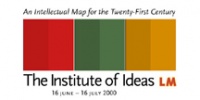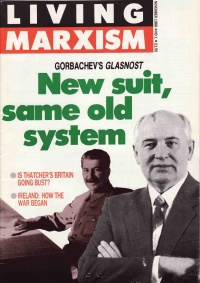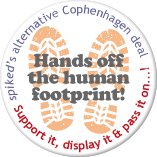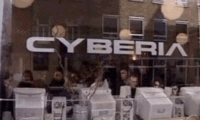Difference between revisions of "LM network"
| Line 47: | Line 47: | ||
[[File:200px-Cyberia Internet Cafe.gif|thumb|right|400px|[[Cyberia]] a business set up by [[LM network]] associate [[Keith Teare]]]] | [[File:200px-Cyberia Internet Cafe.gif|thumb|right|400px|[[Cyberia]] a business set up by [[LM network]] associate [[Keith Teare]]]] | ||
[[File:Modern movement demo.jpg|thumb|right|300px| one and only [[Modern Movement]] demo - a counter to the protests against the third Heathrow runway in February 2009.]] | [[File:Modern movement demo.jpg|thumb|right|300px| one and only [[Modern Movement]] demo - a counter to the protests against the third Heathrow runway in February 2009.]] | ||
| − | + | [[File:GU Logo Animated Text.gif|thumb|right|400px|[[Global Uncertainties Schools Network]] a project of [[Debating Matters]] which is in turn part of the [[Institute of Ideas]] a core element of the [[LM network]]]] | |
==Funding== | ==Funding== | ||
None of the organisations associated with the LM network provides a breakdown of funders and how much they have provided. We do know, however, that they are funded by corporations that fund think tanks dedicated to promoting their interests in the political and media spheres. For example, the pharmaceutical company [[Pfizer]] has funded [[Spiked]], the [[Institute of Ideas]]' [[Battle of Ideas]] in 2005 and 2006, the [[Debating Matters]] programme and two organisations with which the LM network has connections, the [[Science Media Centre]] and [[Sense About Science]]. Both of the latter are engaged in managing debate about scientific issues. | None of the organisations associated with the LM network provides a breakdown of funders and how much they have provided. We do know, however, that they are funded by corporations that fund think tanks dedicated to promoting their interests in the political and media spheres. For example, the pharmaceutical company [[Pfizer]] has funded [[Spiked]], the [[Institute of Ideas]]' [[Battle of Ideas]] in 2005 and 2006, the [[Debating Matters]] programme and two organisations with which the LM network has connections, the [[Science Media Centre]] and [[Sense About Science]]. Both of the latter are engaged in managing debate about scientific issues. | ||
Revision as of 17:27, 17 February 2011
The LM network or LM group is a superficially loose and informal network of individuals and organisations sharing a libertarian and anti-environmentalist ideology. Its constituent organisations are led and largely composed of people associated with the defunct Revolutionary Communist Tendency/Revolutionary Communist Party (RCP) and its principal publication Living Marxism. The network has no public presence or acknowledged existence. The strongest link is between the largest and oldest entities, Spiked and the Institute of Ideas, both established in 2000 by close associates and operating from the same address, Signet House 49-51 Farringdon Road EC1M 3JB, previously the offices of Living Marxism [1]. Associated entities typically have overlapping personnel, similar themes, views and techniques, and promote one another. The network's funds and staff numbers are relatively limited as is its influence. Perhaps of most concern are those LM associates who have obtained influential positions with other organisations and the network’s extensive youth oriented programmes.
The rationale for profiling the LM network on Powerbase is not any one of its main characteristics but rather their combination; these being: advocating policies which benefit corporate interests, set out here Institute of Ideas, corporate funding, a significant focus on influencing youth; the number of organisations it operates; and a lack of transparency about its origins, methods, scope and purpose. This profile is necessarily extensive and detailed because of the network's disparate nature and the lack of formal public links between its entities.


Contents
Methods
The Institute of Ideas’ Director Claire Fox concedes, ‘Certainly, there is a network of like-minded people. Some people do come from an RCP background, because we have a long intellectual history together, and we do work together sometimes…’[4] Former editor of LM and Spiked and continuing Spiked contributor Mick Hume confirms, ‘The network of people I live and work with contain lots of people who were members of the RCP.’[5] while Spiked and Institute of Ideas contributor Dolan Cummings explains ‘I never left the RCP: the organisation folded in the mid-Nineties, but few of us actually 'recanted' our ideas. Instead we resolved to support one another more informally as we pursued our political tradition as individuals, or launched new projects with more general aims that have also engaged people from different traditions, or none. These include Spiked and the Institute of Ideas... ‘[6]
In his statement announcing the closure of LM magazine in spring 2000, LM editor Mick Hume promised that “The LM-initiated Institute of Ideas, a series of events planned to take place from June to July, will go ahead in partnership with major institutions in London, including the British Library, the Royal Institution, the Royal Shakespeare Company, the Royal Society of Arts, Tate Modern, and the Union Chapel Project. A new company, the Academy of Ideas, has been set up by Claire Fox to coordinate these events.”
He also stated that “As for the post-LM future of magazine publishing, watch this space”. Mick Hume was the first editor of Spiked, launched shortly afterwards.
Many of the organisational and campaigning approaches used by those in the network are characteristic of those used by the RCP, including: the creation of a range of organisations without apparent formal links; the launching of multiple campaigns; the use of extensive and extended debate; the adoption of contrarian and controversial positions; the use of martial terminology; and the early adoption of leading edge communication techniques.
A defining characteristic of the network’s entities are their positioning and presentation as catalysts for debate or irreverent challenging of established orthodoxy. In practice, this enables the promotion of the views of the network and its sponsors on almost any topic, under the guise of free enquiry. Their principal underlying themes of economic development and freedom from regulation benefit corporate interests and the larger and more established organisations explicitly seek sponsorship, either directly or via PR companies or free enterprise think tanks. Several of the entities target young people while others are sector or issue led. The network's entities are increasingly seeking partners overseas.
Individual ex-RCP members with links to the network have assumed influential positions elsewhere, particularly in the media and sciences. More generally, higher education is the most common occupational sector of associated personnel, followed by the media. Many have past or current links with the Universities of Kent, Sussex and East London. Details of some of those associated with the LM network are available via LM network at the bottom of this page.
An example of how the network operates was when LM associates James Heartfield and James Woudhuysen set up a building industry consultancy Audacity [7] and sought funding from building companies [8]. The consultancy then published Heartfield’s book ‘Let’s Build’ calling for government support for the building industry [9]. Heartfield’s book was then promoted across part of the rest of the network: Birmingham Salon [10], The Great Debate [11], Spiked [12] and WORLDbytes [13].


Funding
None of the organisations associated with the LM network provides a breakdown of funders and how much they have provided. We do know, however, that they are funded by corporations that fund think tanks dedicated to promoting their interests in the political and media spheres. For example, the pharmaceutical company Pfizer has funded Spiked, the Institute of Ideas' Battle of Ideas in 2005 and 2006, the Debating Matters programme and two organisations with which the LM network has connections, the Science Media Centre and Sense About Science. Both of the latter are engaged in managing debate about scientific issues.
As well as funding the LM network, Pfizer funds free market think tanks such as the US-based Competitive Enterprise Institute and Cato Institute, the Netherlands-based Edmund Burke Foundation, the Brussels based Centre for the New Europe (which also does work on climate funded by Exxon), the UK’s Social Market Foundation and the American Council on Science and Health, a deceptive front group. [14] Pfizer is a member of one of the most important global corporate lobby groups, the International Chamber of Commerce. [15] What’s in it for Pfizer? One clue is in the topics covered by the Debating Matters schools debating competition which include such subjects of interest to the pharmaceutical industry as: the value or otherwise of complementary medicine, NHS rationing of expensive drugs, clinical trials in developing countries, fertility treatments, genetic screening, anti-aging treatments, genetic engineering and animal experimentation.
BT is another major sponsor of the LM network. BT sponsored the Battle of Ideas in 2006, 2007 and 2008. In addition, then BT subsidiary O2 sponsored five Spiked Debates during 2005, 2006 and 2007[16] while another was sponsored by Orange. The Mobile Operators Association is also on record as having funded Spiked. In return, BT/ O2 and other operators had the opportunity via Spiked to challenge public concerns about the perceived effects on health, child protection and the environment of mobile phones.
Other corporations and corporate lobby groups that have funded the LM network are Cadbury Schweppes, IBM, Novartis, Orange, O2, The Mobile Operators Association and the Society of the Chemical Industry. [17] These sources of funding are typical of lobbying or PR firms. Unsurprisingly, some of the biggest lobby firms also fund the network. Hill and Knowlton is one of the most controversial lobbying and PR firms in the world, having famously been behind the deception on the incubator baby story in Kuwait in 1990/91. It also worked for a long list of controversial corporations, including some from the oil, tobacco, pharma, fast food, and GM industry. It worked too for repressive regimes, including Egypt, Haiti, Indonesia, Morocco, Turkey – and China after the Tiananmen square massacre. Along with PR firm Luther Pendragon (which has worked for the Hinduja brothers, Macdonalds, Pepsi, the GM industry and others), Hill and Knowlton has put up cash for LM network events.
The LM network has also worked with other free market think tanks such as the International Policy Network (which took money from Exxon for climate change ’outreach’) and the Social Issues Research Centre (which takes money from the food, alcohol and tech industry and downplays the risks from their products). [18]
Comment by George Monbiot
The following is an excerpt from an interview by Lobbywatch with George Monbiot about the LM network:[19]
- Lobbywatch: Do you actually think there is a network of people concertedly working together as this LM group?
- George Monbiot: That is a good question and I think it could be answered in several different ways. There is a group of people who have more or less stuck together for a long time. To what extent they consciously organise under a single name or under a single banner, I don’t know - you would have to ask them. But that they have pursued a very consistent agenda for quite a long time and the fact that they have moved first of all into one industry, television, and then into another, science communication, more or less as a body, suggests to me that there is a coordinated programme of action.
- Lobbywatch: We all have networks of people that we interact with. What makes this so different? Why do you find it so worrying?
- George Monbiot: There are two reasons why I find it worrying. The first is that the agenda they pursue appears not to be pursued overtly. For example, when they ran the magazine Living Marxism it was very far from a Marxism journal - it was just about as far from a Marxist journal as you could possibly get. And it seemed to me that the title was a direct and deliberate attempt to distract attention from the fact that this was a far right wing libertarian publication which was using the terms of the left to make it look as if the positions it was taking were new and unusual ones. Whereas in actual fact they were very well trodden ones, but well trodden by people like the Libertarian Alliance who in theory were at the other end of the political spectrum.
In another part of the interview, Monbiot talks about the LM network's lack of transparency and their fondness for ostensibly objective debates:
- Lobbywatch: Could you give more examples really of how you see them as not being as transparent as they might be? ...
- George Monbiot: The idea of them sitting behind what appears to be a front? Well another example is the way in which you have got this great proliferation of organisations which all do the same thing and have the same people in it, but run under a host of different names. And perhaps, even more importantly, the way in which they stage debates which claim to be objective and even-handed debates but are totally controlled and managed. And this is what the Institute of Ideas specialises in. Where it will…it is very clever, it knows how to get famous names… because it will write to Melvyn Bragg or someone and say, ‘Mahatma Ghandi, Nelson Mandela and Jesus Christ are coming to speak at this conference we are having in six months time - would you like to join them?’ and they say, ‘Oh yes’. And then they’ll write to Fay Weldon and say ‘Melvyn Bragg, Mahatma Ghandi, Nelson Mandela and Jesus Christ are coming’. Etc. And then they’ll say ‘Unfortunately, Mahatma Ghandi, Nelson Mandela and Jesus Christ can’t come, but anyway we have got Melvyn Bragg and Faye Weldon’. And that is how they operate. So they get all these names together and everyone thinks ‘Oh look…look at all these big names doing this debate, it has got to be a really good debate’. And then they will stuff the panels with these network people. And then you’ll suddenly say ‘Well no, hang on, wait a minute - there’s Tony Gilland, and there’s Juliet Tizzard, and there’s Fiona Fox - what are they doing on the panel?’
History
- 1973
- Split from International Socialists, to create the Revolutionary Communist Group.
- 1976
- A sizable minority are expelled from the RCG.
- 1977
- Led by Frank Furedi the expelled faction creates the Revolutionary Communist Tendency
- 1979
- Publication of the monthly The Next Step
- Smash the Prevention of Terrorism Act Campaign launched
- 1980
- Workers Against Racism launched
- 1981
- RCT changes it name into the Revolutionary Communist Party (RCP)
- 1982
- Smash The Prevention of Terrorism Act Campaign closed
- Irish Freedom Movement launched
- 1985
- The next step becomes a weekly just after the end of the Miners' strike.
- 1987
- The Red Front launched to contest the 1987 election and replace the Labour Party, then closed
- 1988
- RCP establishes Living Marxism
- 1989
- Irish Freedom Movement closed
- 1990
- RCP begins infiltration of academic and media circles
- Parents Against the Charter launched and closed
- Ad-Hoc Hands Off the Middle East Committee launched and closed
- 1991
- WORLDwrite launched
- 1993
- Campaign Against Militarism launched
- 1994
- London International Research Exchange launched
- The next step ceases publication on 25 February 1994.
- Workers Against Racism last active.
- 1995
- Africa Direct launched
- 1996
- RCP dissolves itself
- Families for Freedom launched
- Channel Cyberia
- 1997
- Living Marxism title changed to LM
- Pro-Choice Forum launched
- Freedom & Law launched and closed
- Africa Direct closed
- 1998
- Feminists for Justice launched
- Internet Freedom launched
- Libero launched
- Maverick Club launched
- Campaign Against Militarism closed
- London International Research Exchange closed
- 1999
- Culture Wars launched
- Trasna An Domhain Go Leir launched
- Litigious Society launched and closed
- Families for Freedom closed
- 2000
- LM forced to close after it loses libel case to ITN
- Spiked launched by LM's ex-editor
- Institute of Ideas (originally an event organised by LM) launched as an organisation by LM's co-publisher, Claire Fox
- Audacity launched
- Transport Research Group launched
- Feminists for Justice closed
- Libero closed
- 2001
- Long-time LM contributor, and Claire Fox's sister, Fiona Fox becomes Director of the Science Media Centre
- 2002
- Parents With Attitude launched
- Global Futures launched
- Maverick Club closed
- LM/Spiked/Institute of Ideas contributor Tracey Brown becomes Director of Sense About Science
- 2003
- Debating Matters launched
- Trasna An Domhain Go Leir closed
- 2005
- Battle of Ideas launched
- Bookshop Barnies launched
- Salons launched
- 2006
- Manifesto Club launched
- Future Cities Project launched
- Engaging Cogs launched
- Internet Freedom closed
- 2007
- Academics For Academic Freedom launched
- Student Academics For Academic Freedom launched
- Centre for Parenting Culture Studies launched
- Generation Youth Issues launched
- 2008
- WORLDbytes launched
- ManTownHuman launched
- Transport Research Group closed
- 2009
- Modern Movement launched and closed
- Hands Off The Human Footprint! launched
- Freedom in a Puritan Age launched (loose association)
- Engaging Cogs closed
- 2010
- Big Potatoes launched
- Global Uncertainties Schools Network launched
Organisations
Precursors
- Revolutionary Communist Tendency (1977-1981) | National Organisation of Revolutionary Communist Students 1979 | Revolutionary Communist Party (1981-1996)| The Red Front (1987) | Workers Against Racism (1978-?) | Smash the Prevention of Terrorism Act Campaign (1977-early 1980s) | Irish Freedom Movement (early 1980s to 1993) | Confrontation, theoretical journal (1986-89) | The next step, review/newspaper (1979-1994) | Living Marxism (1988-2000) | Ad-hoc Hands Off the Middle East Committee, 1990 |
Companies
The LM network has operated via a series of companies. At first these were publishing companies, but from the mid 1990s as they branched out into the science communication world and the internet these became for profit companies which often employed significant numbers of LM network associates as well as being used to cross-subsidise other LM network entities. Companies include (in date order):
- Junius Publications (1977-2000) | Informinc (LM) Limited (1997-2004) | JP Graphics Limited (1997-2003) | Cyberia | Easynet | CScape | Inset Press Limited | Academy of Ideas | Cybercafe Limited | Delta Bravo Limited |
Defunct associated entities (with years of activity)
- Africa Direct 1995-7
- Campaign Against Militarism 1993-8
- Channel Cyberia 1996-9
- Engaging Cogs 2006-7
- Families for Freedom 1996-9
- Feminists for Justice 1998-2000
- Freedom & Law Active 1997
- Global Futures launched 2002 (dormant)
- Internet Freedom 1998-2006
- Libero 1998-2000
- Litigious Society launched 1999 by Global Futures
- London International Research Exchange 1994-8
- Maverick Club 1998-2002
- Modern Movement active 2009
- Parents Against the Charter active 1991
- Transport Research Group 2000-2008
- Trasna An Domhain Go Leir 1999-2003
- Workers Against Racism 1980-1994
Active associated entities (with year of launch)
- Academics for Academic Freedom 2007 together with Student Academics For Academic Freedom 2007 - Unqualified free speech
- Audacity 2000 - Construction
- Big Potatoes 2010 - Innovation
- Centre for Parenting Culture Studies 2007 - Academic network
- Freedom in a Puritan Age 2009 - online magazine (limited involvement)
- Future Cities Project 2006 (together with Bookshop Barnies 2005 and ManTownHuman 2008) - Planning/ architecture
- Generation Youth Issues 2007 - Children and young people's peer relations
- The Great Debate 1998 - Debating forum (limited involvement)
- Hands Off The Human Footprint! 2009 - 2010 (inactive) anti-environmentalist
- Institute of Ideas 2000(together with Battle of Ideas 2005, Culture Wars 1999, Debating Matters2003 and Global Uncertainties Schools Network 2010) - Debating fora
- Manifesto Club 2006 - Anti-regulation
- Novo Argumente 1992 - German online magazine (sister organisation)
- Parents With Attitude 2002 - Debating website
- Pro-Choice Forum 1997 - Abortion studies
- Salons (Regional) 2005 - Debating fora
- Spiked 2000 (together with Young Journalists Academy 2006) - online magazine
- Voltaire 2008 - Swedish online magazine (past limited involvement)
- WORLDwrite 1991(together with WORLDbytes 2008) - Current affairs/ media training
The LM network appears to have some influence with the Genetic Interest Group, Progress, the Science Media Centre and Sense About Science. It also has links with The Free Society which uses as columnists LM associates Suzy Dean, Claire Fox and Dennis Hayes, carries articles by LM associates Dolan Cummings, Shirley Dent and Tim Black and maintains front page links with LM entities the Future Cities Project, Institute of Ideas and Spiked [20]. The Free Society has as its policy director ex Tory MSP and hard right ex Chairman of the now disbanded Federation of Conservative Students, Brian Monteith. The other principal organisations involved in the Society are the tobacco industry lobbyists FOREST and the right wing think tank the Adam Smith Institute. The Free Society was a partner of the 2008 Battle of Ideas.
Information on these or other past or present LM/ RCP initiatives gratefully received.
Resources
- Internet Archive Of LM Magazine website Informinc.co.uk
Articles on the RCT/RCP and the LM network
- Andy Beckett, 'Licence to rile', The Guardian, 15 May 1999.
- Graham Barnfield Internet dating, The Loneliest Jukebox, no date, but posted between 17 and 23 February 2006.
- Andrew Billen, "A prickly opinion on just about everything" (profile of Claire Fox), The Times, December 17, 2002.
- Bob from Brockley (pseudonym) Triangulating Bobism 2: The Furedi cult, Wednesday, September 29, 2010
- Martin Bright, 'Civilised debates at the ICA and the RCP...', New Statesman, 13 February 2007
- Chris Bunting, 'What's a nice Trot doing in a place like this', Times Higher Education Supplement", 28 January 2005 (log-in required).
- Alex Callinicos 'Politics or Abstract Propagandism?' International Socialism, 2(11), Winter 1981: 111-128.
- David Campbell Atrocity, memory, photography: imaging the concentration camps of Bosnia – the case of ITN versus Living Marxism
- Nick Cohen, 'THE SECRET REVOLUTION: Hold on a minute. . .' The Observer October 26, 1998
- Nick Cohen, 'Hold on a minute...: The Nazis had a word for it' The Observer November 1, 1998, News Page; Pg. 32
- Nick Cohen, "The rebels who changed their tune to be pundits", New Statesman, 12 August 2002
- Nick Cohen, 'Double Entryism' New Humanist, Nov/Dec 2006.
- Nick Cohen 'Debating Humanism by Dolan Cummings (eds) New Humanist, Volume 121 Issue 6 November/December 2006.
- Nick Cohen 'Long March to the Microphone', Standpoint July/ August 2010.
- Nathan Coombs, 'The Bankruptcy of Spiked's liberal humanism', Nathan Coombs blog 4 November 2008.
- Guy Debord's Cat (pseudonym), 'The LM Network and the idea of free speech', Guy Debord's Cat 8 August 2010.
- Jim Denham, 'RCP hegemonise the Moral Maze', Shiraz Socialist, June 2008
- Eddie Ford Farewell, Living Marxism Weekly Worker, No. 344, July 13 2000.
- Mike Freeman '"Self-activity" makes you blind: A reply to Alex Callinicos and the SWP', World in Recession Revolutionary Communist Papers, No 7 July 1981. p. 22-26
- Gimpy A grumble on the poor quality of a libertarian discourse on passive smoking, Gimpy's Blog, June 21, 2009.
- The Guardian, "Letters Living Marxism and the Serbs", 17 March 2002
- Jim Grant, WTBLS, Appendix 2: Talk to Frank, Tragic Life Stories, 19 Sept 2008
- Danny Hammill, RCP's designer liquidationism, Weekly Worker 230, March 5 1998, version placed in web archive 7 Mar 2007, acc in web archive 28 Apr 2010
- James Heartfield, 'Dave Hallsworth' Obituary, Guardian, 20 December 2007
- Oliver Kamm, "Living Marxism and Tory Sleaze", 13 December 2003
- Gerry Leversha Some Reflections on the 'Revolutionary Communist Group', Marxism Today, January 1978.
- Lobbywatch, Interview with George Monbiot about the LM group, 11 April 2007, archived on GMWatch website
- LobbyWatch LM Watch
- Naomi Mc Women just aren’t funny, while patriarchy is hilarious, Vagina Dentata, SUNDAY, 21 JUNE 2009.
- Chris McGreal, "Genocide? What genocide?", The Guardian, 20 March 2000
- John McVicar, The Scoop that Folded a Magazine Punch, 29 May 2000.
- Brian Micklethwait, "Revolutionary Communist Party as in Living Marxism as in LM as in Spiked and Institute of Ideas - I agree with George Monbiot: who are these people?", 13 December 2003
- Don Milligan, Radical Amnesia and the RCP, Reflections of a Renegade, January 8, 2008.
- George Monbiot 'The Revolution Has Been Televised: Channel 4’s Against Nature series turns out to have been made by an obscure and cranky sect The Guardian 18th December 1997.
- George Monbiot 'Far Left Or Far Right? Living Marxism’s interesting allegiances' Published in Prospect Magazine, November 1998
- George Monbiot, 'Invasion of the Entryists', Guardian (UK), Tuesday December 9, 2003.
- George Monbiot, "Freedom for whom?" Times Higher Education Supplement, 11 February 2005.
- George Monbiot 'Flying Over The Cuckoo’s Nest: How did Marxist class warriors end up fighting for the bosses’ right to fly?' Published in the Guardian, 13th January 2009.
- Necessary Agitation "Inside Modern Movement", Necessary Agitation website, accessed 6 August 2010.
- Michael Mosbacher, 'What is it about London mayors and Marxist sects?', The Social Affairs Unit, May 2008
- Helge Ogrim Battle of Ideas, is the Revolutionary Communist Party still the vanguard? Norwegian Affairs, NOVEMBER 6, 2010 · 11:49 AM
- David Pallister, John Vidal and Kevin Maguire, 'Life after Living Marxism: Fighting for freedom - to offend, outrage and question everything", Guardian (UK), Saturday July 8, 2000.
- David Pallister, John Vidal and Kevin Maguire, "Life after Living Marxism: Banning the bans", The Guardian, July 8, 2000.
- Charlie Pottins, Taking the Rise out of London Monday, July 14, 2008.
- Alex Powney Party On, Comrade!, Fatwah, Circa 2002, Retrieved from the Internet Archive of 27 November 2004.
- Matthew Price, "Raving Marxism", Lingua Franca, March 1999.
- Louis Proyect Cockburn Contrariainism, Louis Proyect -The Unrepentant Marxist, 28 January 2008.
- Dave Renton 7 February: the new socialism of fools, 7 February 2006.
- Dave Renton Living Marxism, spiked online and the RCP Temporary Hoarding, 4/8 March 2006.
- RCG 'Statement on the expulsion of a chauvinist grouping in the RCG', RCG Executive Committee, Nov 1976
- Revolutionary Communist Group, Press statement, 14 October 1979 and Supplement 19 October 1979 On conflict with the RCT.
- RCG Revolutionary Communist Group statement on the march called by the Revolutionary Communist Tendency on 24 November 1979 which launched the Smash the Prevention of Terrorism Act Campaign
- Revolutionary Communist Group 'RCP use violence to stifle debate' Fight Racism! Fight Imperialism!, Statement on IFM conference in Leeds, February 1983
- Claire Robinson and Jonathan Matthews Rotten to the corp Science in Society 21, Spring 2003An expose of biotech's new corporate warriors who promote their agenda by infiltrating the science-media establishment and by using smear tactics borrowed from America's far-right.
- Andy Rowell, "LobbyWatch: SMC complaint", April 2007. (This is an edited version of a submission made by Andy Rowell to the board of the Science Media Centre).
- Andy Rowell and Bob Burton, “Rising Rhetoric on Genetically Modified Crops, PR Watch, Volume 10 No 1, First quarter 2003.
- Andy Rowell and Jonathan Matthews, "Strange Bedfellows", The Ecologist, May 2003
- Mike Small, 'The Faction That Fools the World' Variant Issue 24, Winter 2005, version placed in web archive 20 April 2007
- John Sullivan, As Soon As This Pub Closes ..., 1986 RCP.
- John Sullivan Revolutionary Communist Party, Formerly Revolutionary Communist Tendency From John Sullivan, Go Fourth and Multiply/When This Pub Closes, Socialist Platform, London 2004.First published in 1981 by Dialogue of the Deaf, Box 99, Full Marks Bookshop, 110 Cheltenham Road, Bristol 6.
- David Toube, 'The RCP (heart) Boris', Harry's Place, May 2008
- James Turley, 'Boris gets Spiked', Weekly Worker 722.
- Jenny Turner, 'Who Are They?,' London Review of Books, 8 July 2010
- Usenet Discussion of RCP/LM front groups, from usenet, April 1998.
- Dave Walker Libertarian Humanism or Critical Utopianism? The Demise of the Revolutionary Communist Party New Interventions, Vol.8 No.3, 1998
- Martin J Walker, "Brave New World of Zero Risk: Covert Strategy in British Science Policy" (book), Slingshot Publications, 2006.
- David Webb, RCP/LM front organisations alt.politics.socialism.trotsky, Google Groups, Apr 8 1998, 7:00 am.
- David Webb, 'Liberalism - Let's Spike It!", Originally published in the Salisbury Review Vol 21 No 4, June 2003, pp.25-28.
- Who Makes the Nazi's? Just When You Thought You'd Forgotten About the RCP: Peter Webb on Milieu Cultures Tuesday, 7 September 2010
- Wikipedia Living Marxism
- Richard Wilson Spiked Online – The rohypnol of web-based news and comment Richard Wilson's blog June 21, 2009 at 4:58 pm
- Richard Wilson Climate change “scepticism” and Spiked Online 'Richard Wilson's blog August 1, 2009 at 3:27 pm
- Richard Wilson Quite contrary: inside the Battle of Ideas New Humanist, Volume 126 Issue 1 January/February 2011.
- Workers' Power The British Left and the Irish War, January 1983. (Chapter on the Irish Freedom Movement, p. 41-9.)
Articles on the ITN Libel action
- Thomas Deichmann, "The picture that fooled the world", LM Magazine issue 97, February 1997
- LM Magazine, Press release to accompany Deichmann article, 25 January 1997
- Ed Vulliamy, "I stand by my story", The Guardian, 2 February 1997
- LM Magazine, "Press statement: ITN tries to gag LM", 21:00 24 January 1997
- Julia Hartley-Brewer, "ITN reporter 'bent over backwards for accuracy'", The Guardian, 1 March 2000
- BBC News, "ITN wins bosnian war libel case", 15 March 2000
- Ed Vulliamy, "Poison in the well of history", The Guardian, 15 March 2000
- Mick Hume, "The end of LM Magazine. Statement by Mick Hume, Editor", 29 March 2000
- John McVicar, "The Scoop that Folded a Magazine", Punch, #106, May 2000
- Alexander Cockburn (with Phillip Knightley's 1998 excerpts), "Storm Over Brockes' Fakery", Counterpunch, November 5/6, 2005
Notes
- ↑ ”LM Magazine” Local Life website accessed 7th June 2010
- ↑ Retrieved from the Internet Archive the LM website of 7 February 2000
- ↑ 'Welcome to the new-look LM', LM, February 1997, retrieved from the Internet Archive of 18 February 1998, accessed 27 October 2010
- ↑ Chris Bunting, What's a nice Trot doing in a place like this?, Times Higher Education, 28 Jan 2005, acc 21 May 2010
- ↑ Andy Beckett, Licence to rile, The Guardian, 15 May 1999, acc 21 May 2010
- ↑ Dolan Cummings, In defence of ‘radicalisation’: Critiques of Hizb ut-Tahrir focus less on its dodgy politics than on its intellectualism. But what’s wrong with a devotion to the debate of ideas?, Spiked, 12 Oct 2007, acc 21 May 2010
- ↑ "People" Audacity website, accessed 5 June 2010
- ↑ "We need your support", Audacity website, accessed 5 June 2010
- ↑ "Buy" Audacity website, accessed 5 June 2010
- ↑ "Let’s Build event 8th June 2010", Birmingham Salon website, accessed 5 June 2010
- ↑ "To Build or not to Build" The Great Debate website, accessed 5 June 2010
- ↑ "We need more houses, not divisive housing policies" Spiked website, accessed 5 June 2010
- ↑ "Programme 7 Audacity Director Ian Abley on planning laws" WORLDbytes website, accessed 5 June 2010
- ↑ "American Council on Science and Health", BMJ website, accessed 3 May 2010
- ↑ "Links to ICC member companies", International Chamber of Commerce website, accessed 3 May 2010
- ↑ "Online debates", Spiked website, accessed 7 June 2010
- ↑ "Spiked Brand Managers’ Pack", Spiked website, accessed 8 May 2010
- ↑ "The Social Issues Research Centre", BMJ website, accessed 3 May 2010
- ↑ Lobbywatch, Interview with George Monbiot about the LM group, 11 April 2007, archived on GMWatch website, accessed 21 May 2010
- ↑ "Think Tanks/ Media", The Free Society website, accessed 31 May 2010















